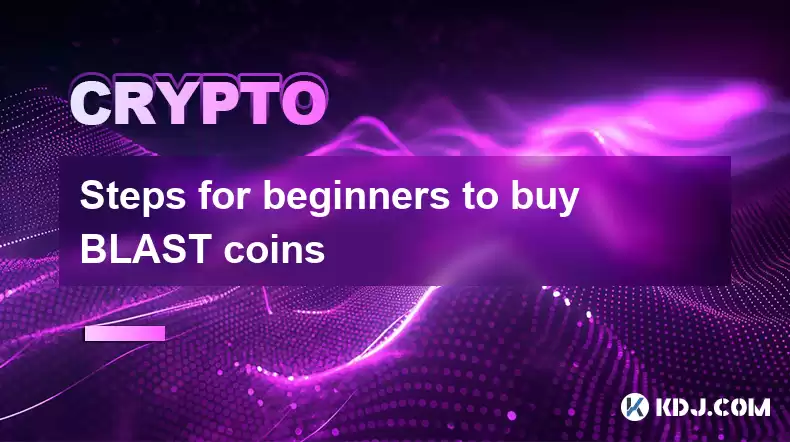-
 Bitcoin
Bitcoin $115000
0.12% -
 Ethereum
Ethereum $3701
4.50% -
 XRP
XRP $3.081
2.99% -
 Tether USDt
Tether USDt $0.0000
-0.01% -
 BNB
BNB $767.9
1.45% -
 Solana
Solana $169.5
3.13% -
 USDC
USDC $0.9999
0.01% -
 Dogecoin
Dogecoin $0.2106
4.30% -
 TRON
TRON $0.3334
1.62% -
 Cardano
Cardano $0.7564
2.54% -
 Stellar
Stellar $0.4165
0.76% -
 Hyperliquid
Hyperliquid $38.75
0.25% -
 Sui
Sui $3.593
3.00% -
 Chainlink
Chainlink $17.08
3.59% -
 Bitcoin Cash
Bitcoin Cash $573.6
4.35% -
 Hedera
Hedera $0.2508
-0.84% -
 Avalanche
Avalanche $23.07
6.46% -
 Ethena USDe
Ethena USDe $1.001
-0.02% -
 Litecoin
Litecoin $120.8
8.17% -
 UNUS SED LEO
UNUS SED LEO $8.943
-0.32% -
 Toncoin
Toncoin $3.400
-5.60% -
 Shiba Inu
Shiba Inu $0.00001255
1.54% -
 Uniswap
Uniswap $9.908
6.32% -
 Polkadot
Polkadot $3.718
2.10% -
 Monero
Monero $303.0
-0.74% -
 Dai
Dai $0.9999
-0.02% -
 Bitget Token
Bitget Token $4.392
0.91% -
 Cronos
Cronos $0.1403
6.31% -
 Pepe
Pepe $0.00001076
1.13% -
 Aave
Aave $267.2
1.80%
Steps for beginners to buy BLAST coins
To purchase BLAST coins, create an account on a reputable cryptocurrency exchange, fund your account, select the desired trading pair, and confirm your order after reviewing the exchange rate and fees.
Jan 02, 2025 at 02:35 pm

Steps for Beginners to Buy BLAST Coins
Key Points:
- Understand the concept of cryptocurrency and blockchain technology.
- Choose a reputable cryptocurrency exchange.
- Create an account and verify your identity.
- Fund your exchange account with fiat currency or cryptocurrency.
- Purchase BLAST coins using your available balance.
- Store your BLAST coins in a secure crypto wallet.
Step 1: Understand Cryptocurrency and Blockchain
Before diving into the process of buying BLAST coins, it's crucial to comprehend the underlying concepts of cryptocurrency and blockchain technology. Cryptocurrency is a decentralized digital currency that operates on a secure network without the need for intermediaries like banks. Blockchain, the backbone of cryptocurrency, is a secure and transparent distributed ledger that records all transactions in a tamper-proof manner.
Step 2: Choose a Reputable Cryptocurrency Exchange
Choosing a reputable cryptocurrency exchange is essential for a safe and reliable trading experience. Consider factors such as trading volume, liquidity, fees, security measures, and customer support. Binance, Coinbase, and Kraken are among the well-established and trusted exchanges.
Step 3: Create an Account and Verify Your Identity
Once you've chosen an exchange, create an account by providing your personal information, email address, and setting a strong password. Most reputable exchanges require you to verify your identity through a process known as Know-Your-Customer (KYC) to comply with anti-money laundering regulations. This may involve submitting identification documents and providing proof of address.
Step 4: Fund Your Exchange Account
To purchase BLAST coins, you'll need to fund your exchange account with either fiat currency (e.g., USD, EUR) or cryptocurrency. Most exchanges support various payment methods, such as bank transfers, credit/debit cards, and other cryptocurrencies. Choose the method that best suits your needs and fund your account with an amount sufficient to cover your BLAST coin purchase.
Step 5: Purchase BLAST Coins
With your exchange account funded, you can proceed to purchase BLAST coins. On the exchange's trading interface, search for BLAST trading pairs, which indicate the available options to acquire BLAST coins. Common trading pairs include BLAST/USDT (Tether) or BLAST/BTC (Bitcoin).
Select the desired trading pair, enter the amount of BLAST coins you wish to purchase, and review the order details, including the exchange rate and fees. Once you're satisfied with the order, confirm your purchase.
Step 6: Store Your BLAST Coins
After purchasing BLAST coins, it's vital to store them securely in a cryptocurrency wallet. A crypto wallet provides a private and secure environment to hold your digital assets. There are various types of crypto wallets available, such as software wallets, hardware wallets, and paper wallets.
Choose a wallet that aligns with your security and convenience preferences. Software wallets are convenient to use, while hardware wallets offer enhanced security. Paper wallets provide the highest level of security but require meticulous handling.
Frequently Asked Questions (FAQs):
Q: What are the benefits of owning BLAST coins?
A: BLAST coins offer several potential benefits, including:
- Access to the BLAST ecosystem and its applications.
- Potential for appreciation in value as the project grows.
- Participation in governance and decision-making within the BLAST community.
Q: Is it risky to invest in BLAST coins?
A: Cryptocurrency investments, including BLAST coins, carry inherent risks. The market can be volatile, and prices can fluctuate significantly. Research and due diligence are crucial before investing in any cryptocurrency. Only invest what you can afford to lose.
Q: What are the fees associated with buying BLAST coins?
A: The fees associated with buying BLAST coins vary depending on the cryptocurrency exchange you use. They may include:
- Trading fees: Charges applied to each trade you execute.
- Deposit fees: Charges for funding your exchange account with fiat currency or cryptocurrency.
- Withdrawal fees: Charges for transferring BLAST coins from the exchange to an external wallet.
Q: How do I sell BLAST coins?
A: To sell BLAST coins, follow a similar process to buying them.
- Navigate to the trading interface on the exchange where you hold your BLAST coins.
- Select the desired BLAST trading pair (e.g., BLAST/USDT or BLAST/BTC).
- Enter the amount of BLAST coins you wish to sell and review the order details.
- Confirm your sell order once you're satisfied with the exchange rate and fees.
Disclaimer:info@kdj.com
The information provided is not trading advice. kdj.com does not assume any responsibility for any investments made based on the information provided in this article. Cryptocurrencies are highly volatile and it is highly recommended that you invest with caution after thorough research!
If you believe that the content used on this website infringes your copyright, please contact us immediately (info@kdj.com) and we will delete it promptly.
- Bitcoin, Fed Rate Cut, and Crypto Stocks: A New Yorker's Take
- 2025-08-05 14:50:12
- Police, Cryptocurrency, Bitcoin Windfall: Unexpected Gains and Cautionary Tales
- 2025-08-05 15:30:12
- MAGACOIN: The Next Shiba Inu ROI? A Crypto Presale Deep Dive
- 2025-08-05 15:30:12
- Bitcoin, Kiyosaki, and the August Curse: Will History Repeat?
- 2025-08-05 14:50:12
- Crypto Airdrops: Your August 2025 Guide to Free Tokens & Opportunities
- 2025-08-05 13:45:13
- Luxury Dining Reimagined: St. Regis Singapore & Marriott's Culinary Celebration
- 2025-08-05 13:45:13
Related knowledge

What is Chainlink (LINK)?
Jul 22,2025 at 02:14am
Understanding Chainlink (LINK): The Decentralized Oracle NetworkChainlink is a decentralized oracle network designed to bridge the gap between blockch...

What is Avalanche (AVAX)?
Jul 22,2025 at 08:35am
What is Avalanche (AVAX)?Avalanche (AVAX) is a decentralized, open-source blockchain platform designed to support high-performance decentralized appli...

What is Polkadot (DOT)?
Jul 19,2025 at 06:35pm
Understanding the Basics of Polkadot (DOT)Polkadot (DOT) is a multi-chain network protocol designed to enable different blockchains to transfer messag...

What is Litecoin (LTC)?
Jul 23,2025 at 11:35am
Overview of Litecoin (LTC)Litecoin (LTC) is a peer-to-peer cryptocurrency that was created in 2011 by Charlie Lee, a former Google engineer. It is oft...

What is Monero (XMR)?
Jul 21,2025 at 10:07am
What is Monero (XMR)?Monero (XMR) is a decentralized cryptocurrency designed to provide enhanced privacy and anonymity for its users. Unlike Bitcoin a...

How to add indicators to Ethereum chart on TradingView?
Jul 19,2025 at 07:15am
What Is an Ethereum Chart on TradingView?The Ethereum chart on TradingView is a visual representation of the price movement of Ethereum (ETH) over a s...

What is Chainlink (LINK)?
Jul 22,2025 at 02:14am
Understanding Chainlink (LINK): The Decentralized Oracle NetworkChainlink is a decentralized oracle network designed to bridge the gap between blockch...

What is Avalanche (AVAX)?
Jul 22,2025 at 08:35am
What is Avalanche (AVAX)?Avalanche (AVAX) is a decentralized, open-source blockchain platform designed to support high-performance decentralized appli...

What is Polkadot (DOT)?
Jul 19,2025 at 06:35pm
Understanding the Basics of Polkadot (DOT)Polkadot (DOT) is a multi-chain network protocol designed to enable different blockchains to transfer messag...

What is Litecoin (LTC)?
Jul 23,2025 at 11:35am
Overview of Litecoin (LTC)Litecoin (LTC) is a peer-to-peer cryptocurrency that was created in 2011 by Charlie Lee, a former Google engineer. It is oft...

What is Monero (XMR)?
Jul 21,2025 at 10:07am
What is Monero (XMR)?Monero (XMR) is a decentralized cryptocurrency designed to provide enhanced privacy and anonymity for its users. Unlike Bitcoin a...

How to add indicators to Ethereum chart on TradingView?
Jul 19,2025 at 07:15am
What Is an Ethereum Chart on TradingView?The Ethereum chart on TradingView is a visual representation of the price movement of Ethereum (ETH) over a s...
See all articles

























































































